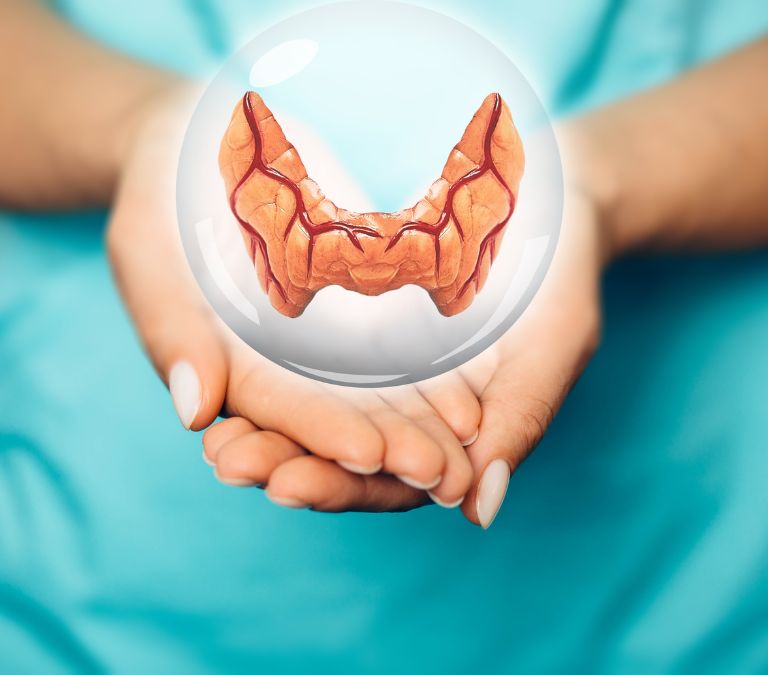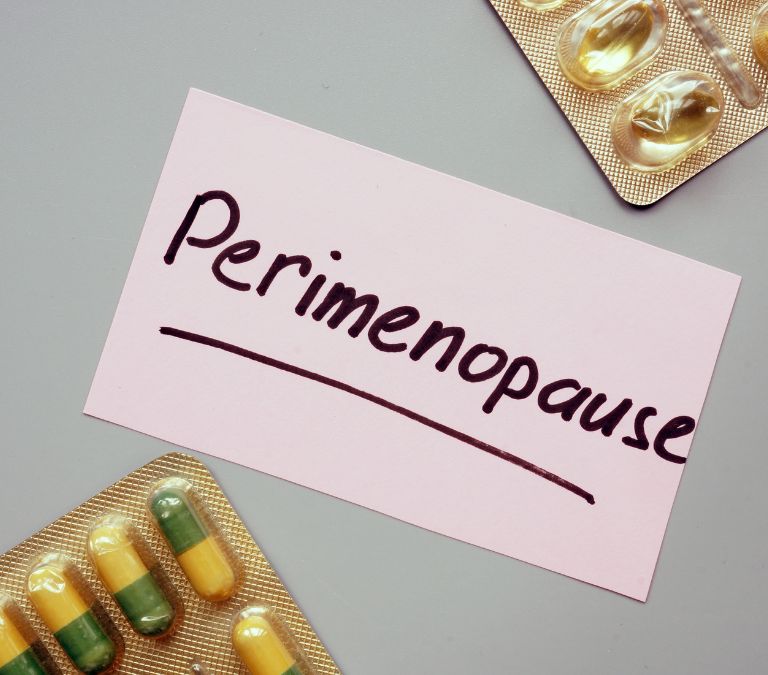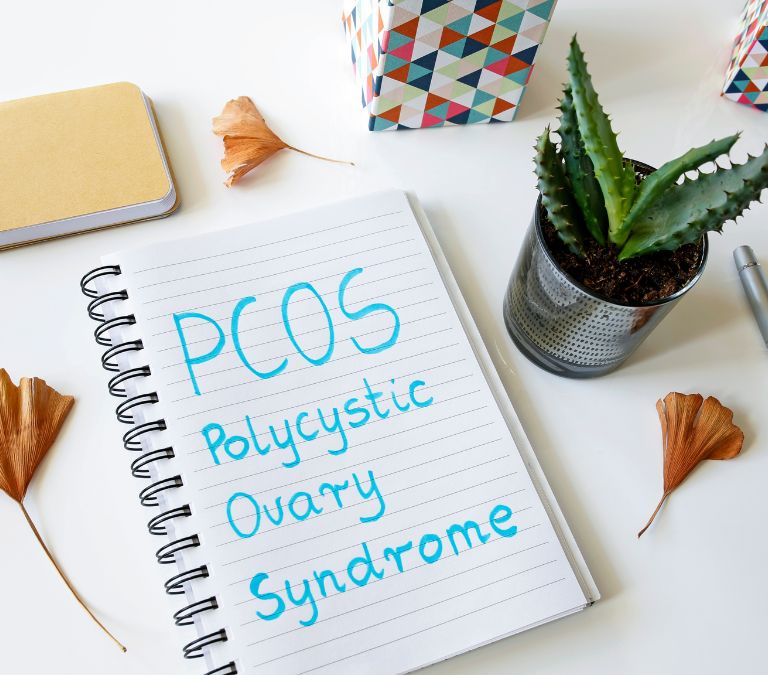As a result of the more elaborate reproductive system, we tend to be more vulnerable to diseases and dysfunctions of the reproductive system than men. In women’s health, the reproductive system plays a key role. Many illnesses experienced by women today are caused by changes in the reproductive system’s function.
From childhood to puberty, adolescence to menopause, we are left with the burden of keeping up and adapting to the ever-changing metabolic patterns of our reproductive organs. As a result of these complicated patterns, the typical woman becomes susceptible to various illnesses like endometriosis, ovarian tumors, vulvovaginitis, dysmenorrhea, toxic shock syndrome, and Polycystic Ovary Syndrome.
Proper sensitization is essential so women like us are not left in the dark regarding our reproductive health. More emphasis will be laid on Polycystic Ovary Syndrome (PCOS) and its relationship with menopause in this article.
Polycystic Ovary Syndrome, often abbreviated as PCOS, is a form of endocrine disorder in women of childbearing age. Of the different forms of endocrine disorders known, PCOS is the most common in women during our years of reproduction. It is called polycystic due to the cyst in the ovaries of some women who experience this illness.
However, many women with PCOS do not have cysts on their ovaries. On the other hand, menopause is the time of our lives when we become unable to bear children naturally due to the gradual and eventual decline in the ability of our ovaries to release eggs. Unlike PCOS, menopause is not a reproductive disorder; it is a natural change every woman must undergo.
PCOS is ubiquitous. A record 26% of its prevalence has been recorded in some populations. Like every other disease, PCOS has signs and symptoms, which can sometimes be severe. It is essential to note the difference between Polycystic Ovary Syndrome (PCOS) and Polycystic Ovaries (PCO).
PCO is a common symptom of PCOS but is not a determinant of PCOS. It means that a woman can have PCOS without having PCO, and a woman can have PCO without having PCOS. Some common symptoms of PCOS include acne, irregular or sometimes non-existent menstrual periods, difficulty in getting pregnant, excess hair on the body and face, heavy periods, difficulty in sleeping, mood swings, type 2 diabetes, hyperandrogenism, anovulation, endometrial cancer, a chunk of thick, dark, and unusually smooth skin, oligoovulation, and pelvic pain.
For a woman to have PCOS, she must have at least two symptoms of PCO, anovulation and hyperandrogenism. A woman with at least two symptoms above tends to have PCOS. Having PCOS increases a woman’s risks of high blood pressure, depression, anxiety, strokes, miscarriage, autoimmune thyroiditis, miscarriage, cardiovascular diseases, type II diabetes, and non-alcoholic fatty liver disease.
The cause of PCOS remains unclear to this day but has been speculated to be influenced by environmental and genetic factors. Women suffering from obesity have been the most vulnerable to PCOS; about 80% of women suffering from PCOS are obese. Not only does obesity increase the vulnerability of women to PCOS, but it also increases the severity of symptoms associated with it.
Which Hormones Are Impacted by PCOS and Menopause

PCOS is very complicated and, as such, cannot be diagnosed using just symptoms. I did my research and realized that sometimes, blood tests are carried out to determine the level of certain hormones in the body. It is important because PCOS is known to cause irregularities in the story of some hormones.
A proper diagnosis can be made for a disease suspected to be PCOS. The hormones of a woman with PCOS are usually out of balance. This imbalance can lead to problems associated with the ovaries. Hormones are constantly produced by our body to make specific mechanisms work. Hormones also regulate the monthly menstrual cycle we experience every month. Hormones affected by PCOS include
- Insulin: The body of a woman with PCOS will not give the required reaction to insulin in the way it should. Insulin is the hormone responsible for the management of blood sugar. A deformation in the mechanism of this hormone will therefore have adverse effects. During menopause, the insulin levels of the body become very irregular, and this causes your blood sugar level to go through persistent fluctuations.
- Progesterone: If you have PCOS, your body may begin to decline in its ability to produce enough progesterone. Menopause also causes a decrease in the progesterone levels of a woman. This decline can lead to delayed or loss of periods for quite a long time. As a result, your periods become irregular and unpredictable, affecting pregnancy.
- Testosterone: Testosterone is regarded as a male sex hormone. However, it is crucial for the sexual health of women. Women living with PCOS usually have higher levels of testosterone. A slight increase in testosterone in a woman’s body can tamper with regular ovulation. Testosterone levels go through a subtle decline for women in the menopausal stage of their lives.
- DHEA-S: Dehydroepiandrosterone is a male hormone found in every woman. While women without PCOS have DHEA-S levels between 35ug/dl to 430ug/dl, women with PCOS can have DHEA-S levels greater than 200ug/dl. In menopausal women, the level of DHEA-S can reduce gradually.
- Androgens: These hormones help in the formation of secondary sexual characteristics. Women going through menopause tend to show decreased levels of androgens, while women with PCOS can offer a very high level of androgens.
It is important to note that some women with PCOS can also have hormone levels that appear within the normal range and still suffer from symptoms associated with PCOS. However, the slightest changes in hormonal levels could result in symptoms related to PCOS but aren’t PCOS itself. As guidance, an increase in testosterone levels above 40 ng/ml and a decrease in the level of dehydroepiandrosterone below 200 ug/dl could be a sign of PCOS and, as such, should require the attention of a specialist.
Can Polycystic Ovary Syndrome (PCOS) Be Cured?

One cannot cure Polycystic Ovary Syndrome. It doesn’t mean one cannot manage PCOS. So how can PCOS be managed? PCOS is controlled by manipulating the symptoms that come with it. As a result of the diversity of symptoms associated with PCOS, the treatment options tend to vary between two patients.
While you can adopt other means of treating PCOS, I still choose the lifestyle and diet changes as the best options. Overweight women show more severe changes with PCOS. It means losing weight can improve the well-being of obese or overweight women living with PCOS. Some ways of losing weight include eating a healthy and balanced diet, including fresh fruits and vegetables, and exercising regularly.
Eat more whole-grain cereals, brown rice, fish, chicken, lean meats, and wholemeal bread. It is advisable to refer to a dietician for inquiries and dietary advice. Several medicines have been developed to treat different symptoms affiliated with PCOS. Various medications are now available to treat issues associated with PCOS, from contraceptive pills for irregular or non-existent periods to IVF treatment for fertility problems.
With proper management of these symptoms, you can live a healthy life.
How does PCOS affect you after menopause?
It is essential to know that while menopause causes infertility, it does not cure PCOS. We know menopause comes with various hormone changes but in no way serves as a cure for PCOS. However, PCOS is known to delay menopause by two years compared to women without the syndrome. PCOS can persist even after menopause, and the over-production of androgens continues even through the menopausal transition. Menopausal women with PCOS are even more susceptible to type 2 diabetes mellitus and cardiovascular diseases. Women in menopause and still living with PCOS are advised to take excellent care of themselves, make lifestyle changes, and consult with a doctor to effectively manage the complications of menopause and PCOS.
What Happens If PCOS Is Left Untreated?

While PCOS has no cure, managing the symptoms can help cushion the effects of the symptoms associated with it. If PCOS is left untreated and unmanaged, its impact on the body can be excruciating. Untreated PCOS will lead to worsening symptoms of type 2 diabetes, cardiovascular disease, obesity, and infertility. All of these symptoms left unmanaged can lead to death.
Perimenopause vs. PCOS Symptoms
Perimenopause is the period leading to menopause. Just like, perimenopause comes with its symptoms as well. Since PCOS doesn’t go away with menopause, its symptoms persist even with the start of menopause. PCOS and perimenopause have similar symptoms and also very different symptoms as well. Some other symptoms associated with these two include:
| PCOS | Perimenopause |
| Will not cause changes in sex drive | Capable of causing changes in sex drive |
| Associated with acne and other skin problems | Not associated with acne and other skin problems |
| It does not cause hot flashes and night sweats (vasomotor symptoms) | Hot flashes and night sweats are characteristic symptoms. |
| Do not cause pain and discomfort during sexual intercourse | Dryness of the vagina and reduced sexual urge can cause pain and discomfort during sexual intercourse |
| No form of vaginal dryness and narrowing of the tissue of the vagina | Vaginal dryness and narrowing of the tissues of the vagina are widespread |
| It does not cause vaginal and urinary tract infections | Capable of causing vaginal and urinary tract infections |
| Not associated with urinary incontinence | Associated with urinary incontinence |
| Capable of forming cysts in ovaries | Does not form cysts in ovaries |
Some similarities in the symptoms associated with both PCOS and perimenopause include:
- They both cause irregular or non-existent periods
- Both of them are associated with causing infertility in women
- They cause unwanted hair growth
- Weight gain is recorded in both PCOS and perimenopause
- They cause mood changes
- Reduced sleep or difficulties in sleeping have been recorded in both PCOS and perimenopause
Ways PCOS Can Affect Your Health
Polycystic Ovary Syndrome is a lifelong condition and sometimes can be very severe. So, we can answer the question of PCOS affecting our mind and body with a resounding yes! PCOS has no cure for now; this means women with PCOS have no choice but to deal with it using lifestyle changes and medications. From mild effects like acne to extreme impacts like gestational diabetes, type 2 diabetes, and even death, PCOS, no doubt, can be very detrimental to our health if left untreated.
A study was performed to understand the extent of the risk of health problems and death in patients who have been diagnosed with PCOS. Researchers observed patients with underlying health issues like type 2 diabetes mellitus suffer an increased risk of health problems.
A woman who already has diabetes is exceptionally prone to severe health complications when diagnosed with PCOS. In a nutshell, diabetic mothers are twice more likely to die from more health complications triggered by PCOS. According to other research, more than 50% of PCOS patients will have diabetes before turning 40.
When compared with women without PCOS, it is observed that women with PCOS are also more likely to suffer from high blood pressure. High blood pressure causes stroke and heart diseases. Women with PCOS also tend to possess dangerously high levels of low-density lipoprotein, known as bad cholesterol, and relatively staggering amounts of low levels of high-density lipoprotein, known as good cholesterol. High quantities of low-level cholesterol in the system can increase a woman’s vulnerability to heart disease and stroke.
Also, PCOS has been linked severally to cases of Endometrial cancer. This type of cancer is formed in the lining of the uterus and is common in women who have problems with ovulation, obesity, diabetes, and insulin resistance.
While PCOS is often linked to severe diseases today, it will help to know that so many women who have PCOS today live healthy lives, even beneficial than some women without this disorder. It is because they strive to manage this syndrome in every possible way. So, even with the lack of a cure for this disorder and the severity of symptoms associated with it, proper lifestyle changes, diet changes, and medications can be very useful in containing and managing this disorder.
How to Manage PCOS during Perimenopause

Perimenopause, the period that leads to menopause, can come with some symptoms like the characteristic hot flashes and night sweats many of us are already used to. Other perimenopause symptoms include vaginal dryness, difficulty sleeping, and irregular menstruation. Living with PCOS can be challenging but can be managed quite well. Owing to certain similarities in the symptoms of perimenopause and that of PCOS, some techniques adopted to manage PCOS can also be adopted to address those with perimenopause. Some of these techniques include:
- Maintaining a Healthy Weight:
As stated earlier, obesity increases a woman’s vulnerability to PCOS. However, both perimenopause and PCOS are capable of causing weight gain. Maintaining a healthy weight is a good way of managing PCOS, especially during perimenopause.
Not only does maintaining a healthy weight help in decreasing our susceptibility to the symptoms of PCOS, but it also helps decrease our risks of insulin resistance and heart attack. Some ways of managing or maintaining a healthy weight include:
- Engaging in regular exercise
- Reducing the average amount of food taken into the body daily
- Eating more fruits and vegetables
- Managing Unwanted Hair:
We sometimes feel distressed and gloomy due to unwanted hair growth caused by PCOS and perimenopause. However, some methods have proven to help manage unwanted hair growth. These methods include waxing, utilizing hair removal cream, and plucking.
I have used waxing to deal with unwanted hair growth, and this method is super-effective. While this method works well for me, it might not be effective enough for some of you or other women. It is why speaking to a doctor or a medical practitioner remains the best way of dealing with excessive hair growth, as some prescribed medications can prove, in those cases, to be very helpful.
- Having Enough Sleep: Most women going through menopause or PCOS find it very difficult to get enough sleep. Irregularities in sleep patterns have been typical for me recently. Nevertheless, quality sleep is essential. If you aren’t getting enough of it, it can lead to even more severe symptoms of PCOS and menopause. So, getting enough quality sleep can be very helpful to cushion the effects of PCOS and still manage a healthy lifestyle even with all the symptoms of menopause together with PCOS.
- Taking Medication: Maintaining a healthy lifestyle is perfect for managing PSOS during menopause. As stated earlier, I would always go for lifestyle changes over medications. However, some symptoms can be very severe and detrimental, and the only or the best option is the use of medication. Hormone therapy is excellent in some cases and can sometimes be the only available option. It is essential to speak to a doctor before taking any medication. Some symptoms of PCOS and their respective medications include:
- Fertility problems: With PCOS, it becomes pretty challenging to get pregnant due to the imbalance in hormones which tends to interfere with ovulation. However, women with PCOS can still get pregnant if proper treatment is administered. Most women given prescribed tablets at the beginning of every cycle come out victorious and will get pregnant. If these short courses of tablets appear not to work, injections and IVF treatment can be used as alternatives in managing fertility problems.
- Irregular or non-existent periods: Contraceptive pills are often recommended to induce regular periods. It can also help in reducing the long-term risks of developing endometrial cancer. This form of cancer is influenced by irregular periods.
- Rapid hair growth: Some medicines to control excessive hair growth include spironolactone, finasteride, and cyproterone. These medicines block male hormones from facilitating hair growth in certain regions. Sometimes, hair removal products are used together with these medicines.
- Easing flashes: Hot flashes are very common during perimenopause. Wearing more lightweight clothing is an excellent way of ensuring breathability, ventilation, and comfort in the chest region. The amount of caffeine, alcohol, and spicy goods taken should be minimal; cigarette intake should be prohibited by all means necessary. Keeping your bedroom cool and utilizing a soft gel pad to sleep on can help reduce.
- Staying Happy and Positive: While we cannot be assured of stress-free lives during perimenopause, staying happy and radiating positivity can help strengthen our immune system and relieve stress. Remember that a healthy mind is a happy mind, and worrying or always wearing a sad face will not help you.
While menopause is part of life’s journey, PCOS isn’t; this means not all cases of infertility or other symptoms associated with postmenopause are signs of menopause. Sometimes. It can be a disease that can be prevented or treated. PCOS is becoming quite prevalent in modern society.
In 2005, more than 4 million cases of PCOS were reported in the US alone. This number is assumed to triple for women who never visited the hospital. As a result of its prevalence, so much money is spent every year researching PCOS. This number becomes even more alarming when focused on third-world countries where women like us are equipped with very little sensitization on the effects of PCOS on fertility and perimenopause.
So many women today are still searching for answers as to why they show some signs and symptoms associated with PCOS. Therefore, it becomes imperative to make inquiries about our health. No matter how small, we should consult a doctor so we do not suffer for something that can be treated or prevented.







